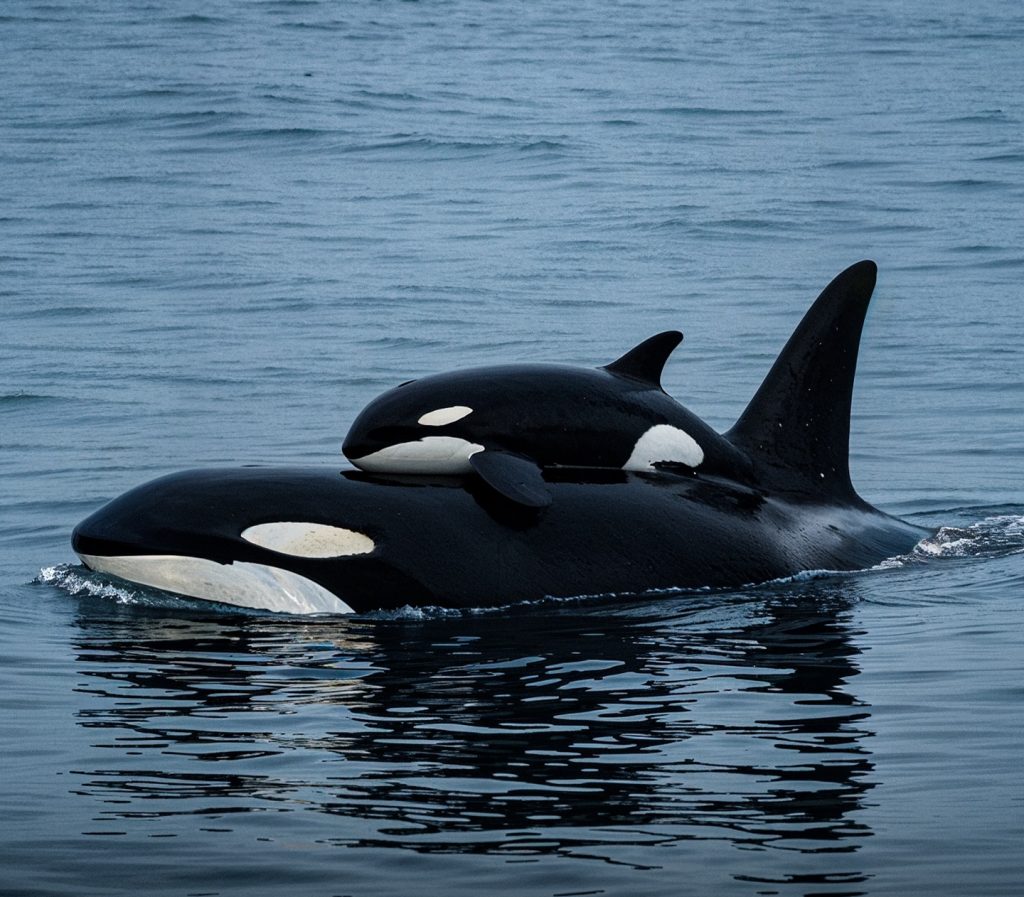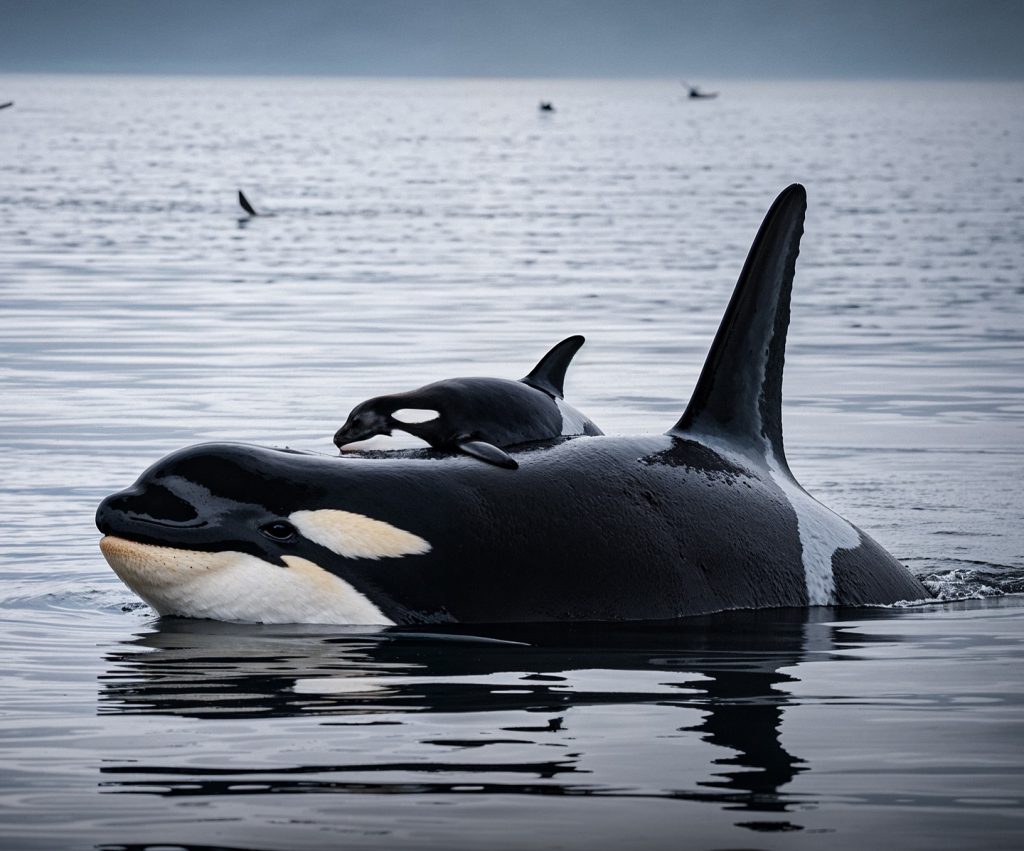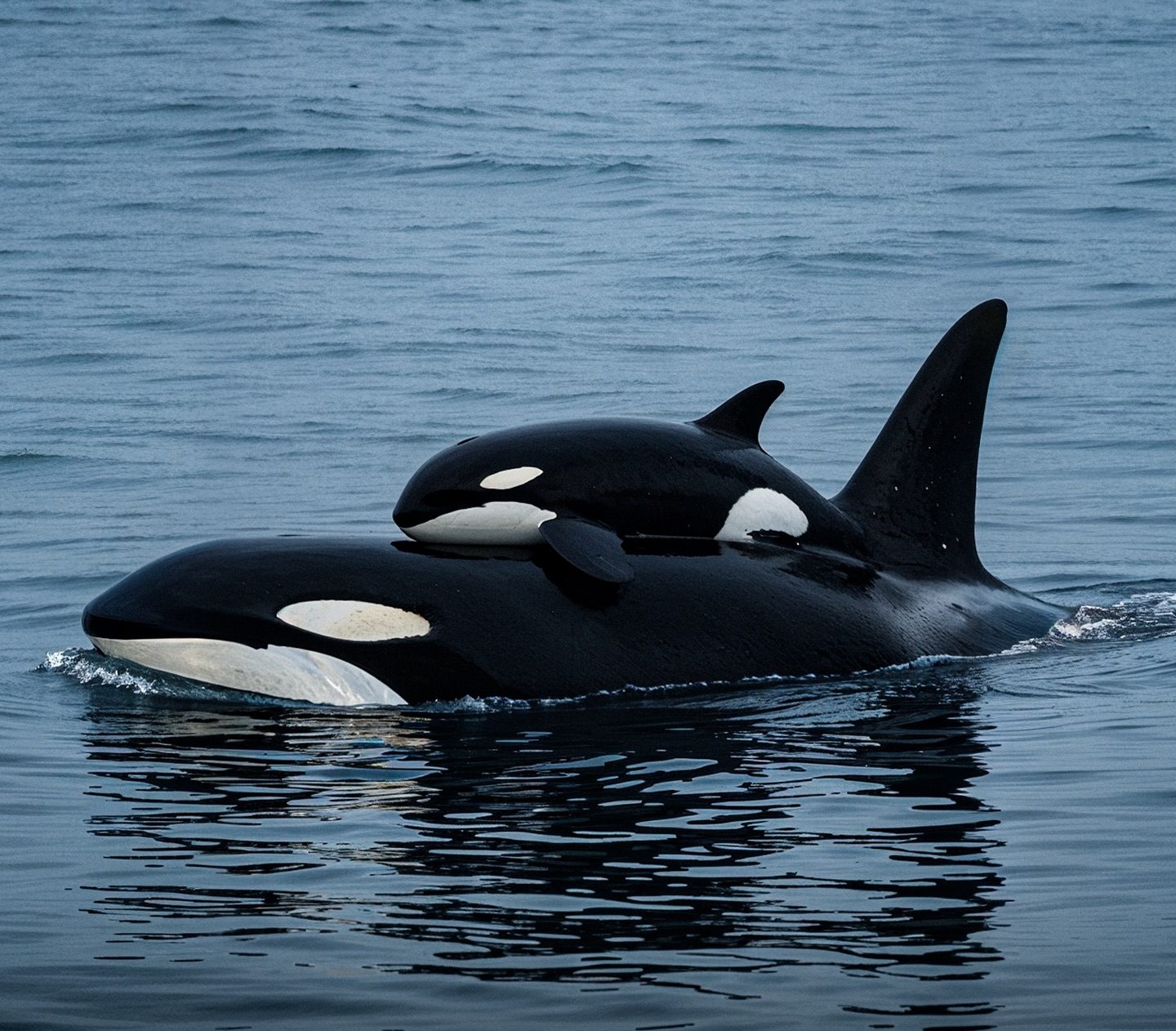How Tahlequah the Grieving Orca Carried Her Dead Calf for 17 Days Across 1,000 Miles, Turning Loss into a Global Story of Love and Survival
Some stories of the natural world cut so deeply into our hearts that they stay with us forever. In the summer of 2018, a mother orca named Tahlequah, also known by her scientific ID J35, carried out an act of grief so profound that it shocked scientists and moved people across the globe. After giving birth to a calf that survived only a short time, Tahlequah did something extraordinary—she carried her dead baby on her head and back for 17 days straight, traveling an estimated 1,000 miles across the waters of the Salish Sea. Researchers called it the “Tour of Grief,” and it became one of the most powerful displays of animal emotion ever witnessed.
Orcas, often referred to as killer whales, are known for their strong family bonds. They live in matrilineal pods, passing down knowledge and traditions through generations. But even with what scientists already understood about their intelligence and emotions, what Tahlequah did pushed the boundaries of what we thought we knew. Every day, as her pod continued their journey, she stayed close to the surface, carefully balancing the lifeless calf. At times she would dive deep, only to resurface with it once again. Observers at first thought she might stop after a day or two, but she did not. Seventeen days went by before she finally let the calf’s body sink into the depths.

Her grief became a symbol, a story far larger than one pod or one whale. Around the world, people followed updates from researchers who were tracking her. News outlets covered her journey, and social media amplified her vigil into a global discussion about love, loss, and the fragility of life in the ocean. Humans saw in her a reflection of their own mourning rituals. Just as a parent might sit by a child’s grave or hold onto their belongings as a way of keeping them close, Tahlequah’s refusal to let go spoke to a truth that resonates across species: grief is universal, and love does not end when life does.
The story carried even more weight because Tahlequah belongs to the southern resident orca population, a critically endangered group that inhabits the waters off the Pacific Northwest. Their numbers have been declining for decades, largely due to a shortage of Chinook salmon, pollution, and the stress caused by noisy shipping traffic. At the time of Tahlequah’s vigil, there were only 75 individuals left. Today, that number hovers around 73. Every calf born to this population carries hope, and every loss is devastating not just emotionally, but for the survival of the entire group. When Tahlequah lost her calf, it wasn’t only her tragedy. It was the pod’s tragedy. It was humanity’s tragedy too, a reminder of what is at stake if we fail to protect them.

Years later, Tahlequah’s story is still remembered, not just because of the heartbreak but because of what happened afterward. In 2020, she gave birth again, this time to a healthy calf named J57. Scientists and whale watchers rejoiced, celebrating her resilience and the miracle of new life. That calf is still alive today, a symbol of hope in a population fighting for survival. It proved that while grief can break us, it can also push us forward, carrying us into new chapters even after unbearable loss.
When we think about Tahlequah carrying her calf for 17 days, we are reminded that the ocean is not just a place of survival, but a place of deep emotion and family. These whales are not statistics or research subjects; they are beings with relationships, stories, and memories. Tahlequah showed us that love is as vast as the sea itself, and that mourning, no matter the species, is an act of devotion.
Her “Tour of Grief” remains one of the most extraordinary acts of maternal love ever witnessed in the animal kingdom. It is a story that continues to inspire conservationists, a reminder that protecting orcas is not just about saving a species, but about respecting a bond as timeless and unbreakable as the tide.

